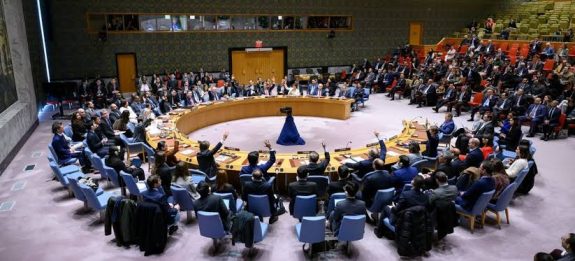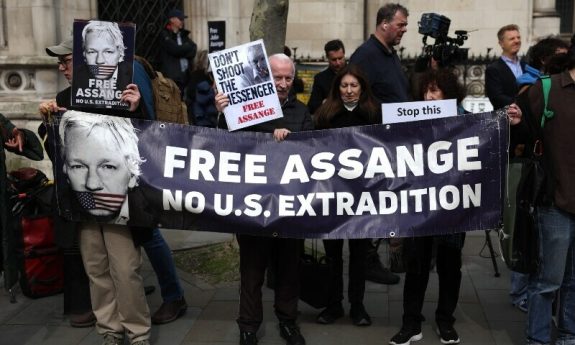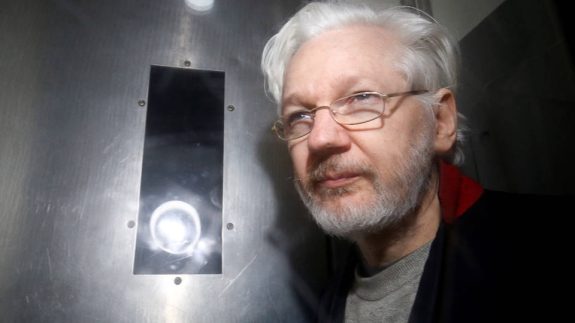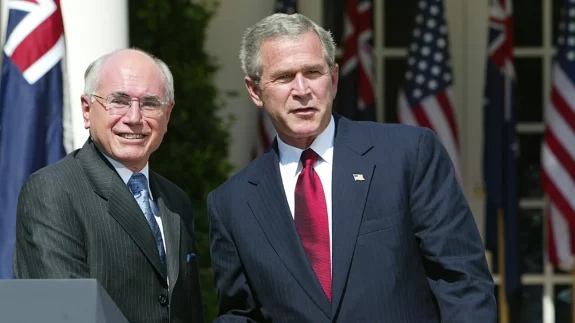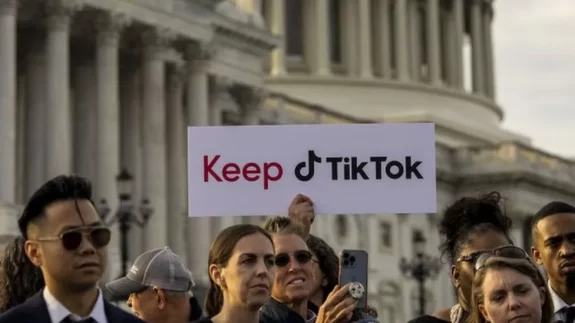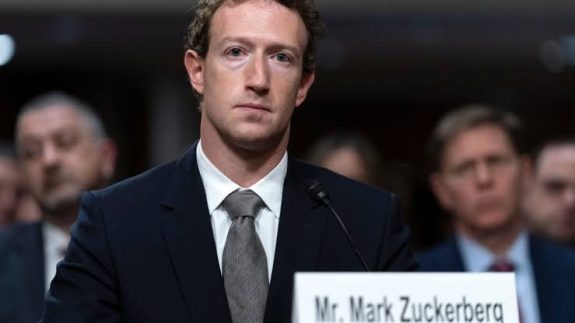Starvation in Gaza: The World Court’s Latest Intervention

Rarely has the International Court of Justice been so constantly exercised by one topic during a short span of time. On January 26, the World Court, considering a filing made the previous December by South Africa, accepted Pretoria’s argument that the Convention on the Prevention and Punishment of the Crime of Genocide was applicable to the conflict in so far as Israel was bound to observe it in its military operations against Hamas in Gaza. (The judges will determine, in due course, whether Israel’s actions in Gaza meet the genocidal threshold.) By 15-2, the judges noted that “the catastrophic humanitarian situation in the Gaza Strip is at serious risk of deteriorating further before the Court renders its final judgment.”
At that point 26,000 Palestinians had perished, much of Gaza pummelled into oblivion, and 85% of its 2.3 million residents expelled from their homes. Measures were therefore required to prevent “real and imminent risk that irreparable prejudice will be caused to the rights found by the Court to be plausible, before it gives its final decision.”
Israel was duly ordered to take all possible measures to prevent the commission of acts under Article II of the Genocide Convention; prevent and punish “the direct and public incitement to genocide” against the Gaza populace; permit basic services and humanitarian assistance to the Gaza Strip; ensure the preservation of, and prevent destruction of, evidence related to acts committed against Gaza’s Palestinians within Articles II and III of the Convention; and report to the ICJ on how Israel was abiding by such provisional measures within a month. The balance sheet on that score has been uneven at best.
Since then, the slaughter has continued, with the Palestinian death toll now standing at 32,300. The Israelis have refused to open more land crossings into Gaza, and continue to hamper aid going into the strip, even as they accuse aid agencies and providers of being tardy and dishonest. Their surly defiance of the United States has seen air drops of uneven, negligible success (the use of air to deliver aid has always been a perilous exercise). When executed, these have even been lethal to the unsuspecting recipients, with reported cases of parachutes failing to open.
On March 25, the UN Security Council, after three previous failed attempts, passed Resolution 2728, thereby calling for an immediate ceasefire for the month of Ramadan “leading to a lasting sustainable” halt to hostilities, the “immediate and unconditional release of all hostages”, “ensuring humanitarian access to address their medical and other humanitarian needs” and “demands that the parties comply with their obligations under international law in relation to all persons they detain.”
Emphasis was also placed on “the urgent need to expand the flow of humanitarian assistance to and reinforce the protection of civilians in the entire Gaza Strip.” The resolution further demands that all barriers regarding the provision of humanitarian assistance, in accordance with international humanitarian law be lifted.
Since January, South Africa has been relentless in its efforts to curb Israel’s Gaza enterprise in The Hague. It called upon the ICJ on February 14, referring to “the developing circumstances in Rafah”, to urgently exercise powers under Article 75 of the Rules of Court. Israel responded on February 15. The next day, the ICJ’s Registrar transmitted to the parties the view of the Court that the “perilous situation” in the Gaza Strip, but notably in Rafah, “demands immediate and effective implementation of the provisional measures indicated by the Court in its Order of 26 January 2024.”
Throughout the following month, more legal jostling and communication took place, with Pretoria requesting on March 6 that the ICJ “indicate further provisional measures and/or to modify” those ordered on January 26. The application was prompted by the “horrific deaths from starvation of Palestinian children, including babies, brought about by Israel’s deliberate acts and omissions … including Israel’s concerted attempts since 26 January 2024 to ensure the defunding of [the United Nations Relief and Works Agency (UNRWA) and Israel’s attacks on starving Palestinians seeking to access what extremely limited humanitarian assistance Israel permits into Northern Gaza, in particular.”
Israel responded on March 15 to the South African communication, rejecting the claims of starvation arising from deliberate acts and omissions “in the strongest terms.” The logic of the sketchy rebuttal from Israel was that matters had not materially altered since January 26 to warrant a reconsideration: “the difficult and tragic situation in the Gaza Strip in the last weeks could not be said to materially change the considerations upon which the Court based its original decision concerning provisional measures.”
On March 28, the Court issued a unanimous order modifying the January interim order. Combing through the ghoulish evidence, the judges noted an updated report from March 18 on food insecurity from the Integrated Food Security Phase Classification Global Initiative (IPC Global Initiative) stating that “conditions necessary to prevent Famine have not been met and the latest evidence confirms that Famine is imminent in the northern governorates and projected to occur anytime between mid-March and May 2024.” The UN Children’s Fund had also reported that 31 per cent of children under 2 years of age in the northern Gaza Strip were enduring conditions of “acute malnutrition”.
In the face of this Himalaya of devastation, the Court could only observe “that Palestinians in Gaza are no longer facing a risk of famine, as noted in the Order of 26 January 2024, but that famine is setting in, with at least 31 people, including 27 children, having already died of malnutrition and dehydration.” There were “unprecedented levels of food insecurity experienced by Palestinians in the Gaza strip over recent weeks, as well as the increasing risks of epidemics.”
Such “grave” conditions granted the Court jurisdiction to modify the January 26 order which no longer fully addressed “the consequences arising from the changes in the situation.” In view of the “worsening conditions of life faced by Palestinians in Gaza, in particular the spread of famine and starvation”, Israel should take “all necessary and effective measures to ensure, without delay, in full cooperation with the United Nations, the unhindered provision at scale by all concerned of urgently needed basic services and humanitarian assistance.”
The list of what is needed is also enumerated: food, water, electricity, fuel, shelter, clothing, hygiene, sanitation requirements, and “medical supplies and medical care to Palestinians throughout Gaza, including by increasing the capacity and number of land crossing points and maintaining them open for as long as necessary.”
A less reported aspect of the March 28 order, passed by fifteen votes to one, was that Israel’s military refrain from committing “acts which constitute a violation of any rights of the Palestinians in Gaza as a protected group” under the Genocide Convention “including by preventing, through any action, the delivery of urgently needed humanitarian assistance.”
In this, the Court points to the possible, and increasingly plausible nexus, between starvation, famine and deprivation of necessaries as state policies with the intent to injure and kill members of a protected group. It is no doubt something that will weigh heavily on the minds of the judges as they continue mulling over the nature of the war in Gaza, which South Africa continues to insist is genocidal in scope and nature.
Like what we do at The AIMN?
You’ll like it even more knowing that your donation will help us to keep up the good fight.
Chuck in a few bucks and see just how far it goes!
Your contribution to help with the running costs of this site will be gratefully accepted.
You can donate through PayPal or credit card via the button below, or donate via bank transfer: BSB: 062500; A/c no: 10495969











